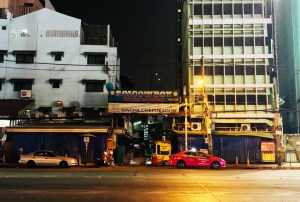Thailand’s tourism arrived at a crossroads, and it’s painful
24 August, 2021

After decades of hitting the tourism jackpot by selling a tropical holiday experience with “smiles,” easy-going lifestyle, arguably good food and a no-strings-attached entertainment scene, Thailand has come to the turning point some 16 months after the Covid-19 pandemic struck the country which has been forced to close its borders to leisure visitors.
Arrival numbers dropped from almost 40 million in 2019 to – well – basically just a few currently entering through the so-called Phuket sandbox scheme. The Tourism Authority of Thailand gave their number at 14,000 by mid-August since the start in July, and it doesn’t seem that the numbers would be surging anytime soon.
While Covid-19 is the principal cause for the collapse of Thai tourism, it has also exposed what’s wrong with this business. And Thai tourism authorities – and actually those who are in charge running this country –would be wise to learn from this development.
Bad attitude a major setback
The tourism scene in Thailand has long functioned as an economical lifeline for the not-so-well off, providing them the opportunity to earn a living far beyond that what they would be able to under normal circumstances – this included not only normal tourism work but all the sleaziness that has developed over time and turned the attitude of many Thais to the worse.
But it worked so well and at the end accounted – officially – for a whopping 20 per cent of gross domestic product and – unofficially – probably substantially more, leaving everyone satisfied living off with little effort from the foreign dollar/euro/yen/won/renminbi etc.
Now that things have changed, the utter neglect of those running the country – essentially a sequence of military folks and uninspired and unaccountable politicians – in putting up a safety net for tourism workers in terms of their employability is showing its ugly face.
Selling food or body?
In a recent article in the Pattaya News – not a world-class gazette, but interesting to learn about the societal micro-climate in that city – a former bar worker complained she would “go home and sell Isaan food on the street” in case the gogo bars would not open soon and tourists would be back to sponsor her.
So, this means basically what she believes is that she has no other option than selling her body or selling food on the street – which is, on the one hand, owing to her laziness in designing her own life, but, on the other hand, owing to a government incapable of providing a reasonable education and some sort of a basic social ecosystem that would encourage people to be more creative and ambitious in terms of shaping their live patterns.
The longer the pandemic went on, more former gogo bars in red light hot spots in Bangkok have been transformed into fruit or food shops, selling everything from mangos, fried rice and northeastern sausages. So far goes life here. Not a glimmer of creativity.
Some acknowledgment would be useful
Thailand is still refusing to acknowledge that the high-life of mass tourism is over, but it will certainly need to come to terms with it.
Some tourism officials have now brought up the idea to focus on “high-end tourism” in Thailand.
This is a reasonable idea, but here Thailand is entering a competitive arena which it probably does not fully understand yet.
High-end tourism leaves no room for adversities such as dirty beaches, bad attitude of locals, poor infrastructure and sleaziness all over. There is a number of countries offering high-end tourism which Thailand possibly has to study first, among them Oman, the Seychelles, Japan, South Africa, Mauritius, Hawaii, Fiji, French Polynesia, Portugal, Italy and others. Travel magazines are regularly ranking luxury destinations. Thailand is rarely among them.
Where are the “big spenders”?
In a recent interview with local media, Thai tourism minister Phiphat Ratchakitprakarn was dreaming of attracting “high-end travelers and big spenders, rather than a large number of visitors like what we have been relying on in the past.”
It would be vital that Thailand” resets its entire tourism system,” he said.
That’s right. But this also needs some sort of commitment in a country with over a dozen coups since 1932 and no tourism minister ever being long enough in office to achieve anything noticeable.
Source:
